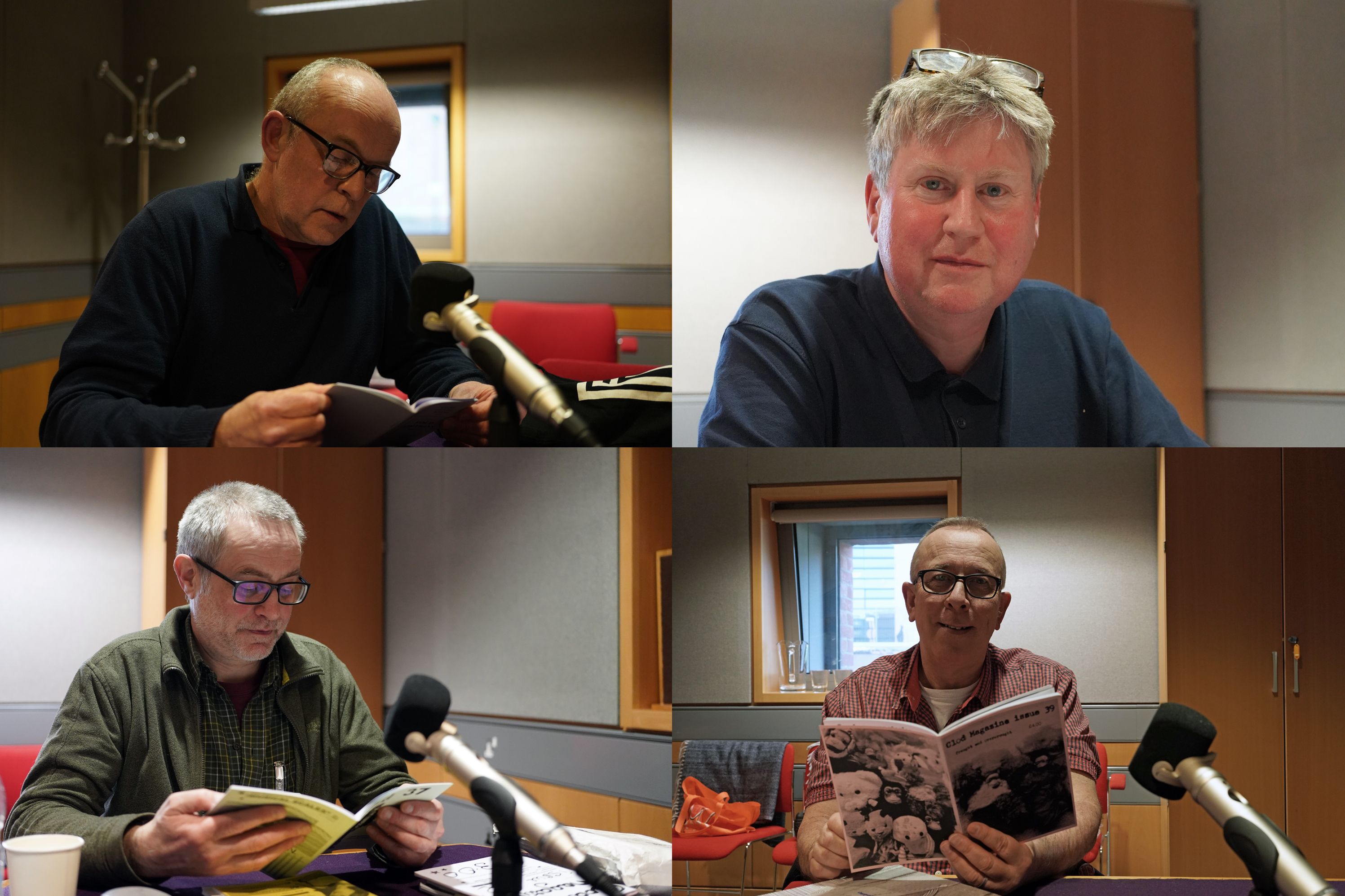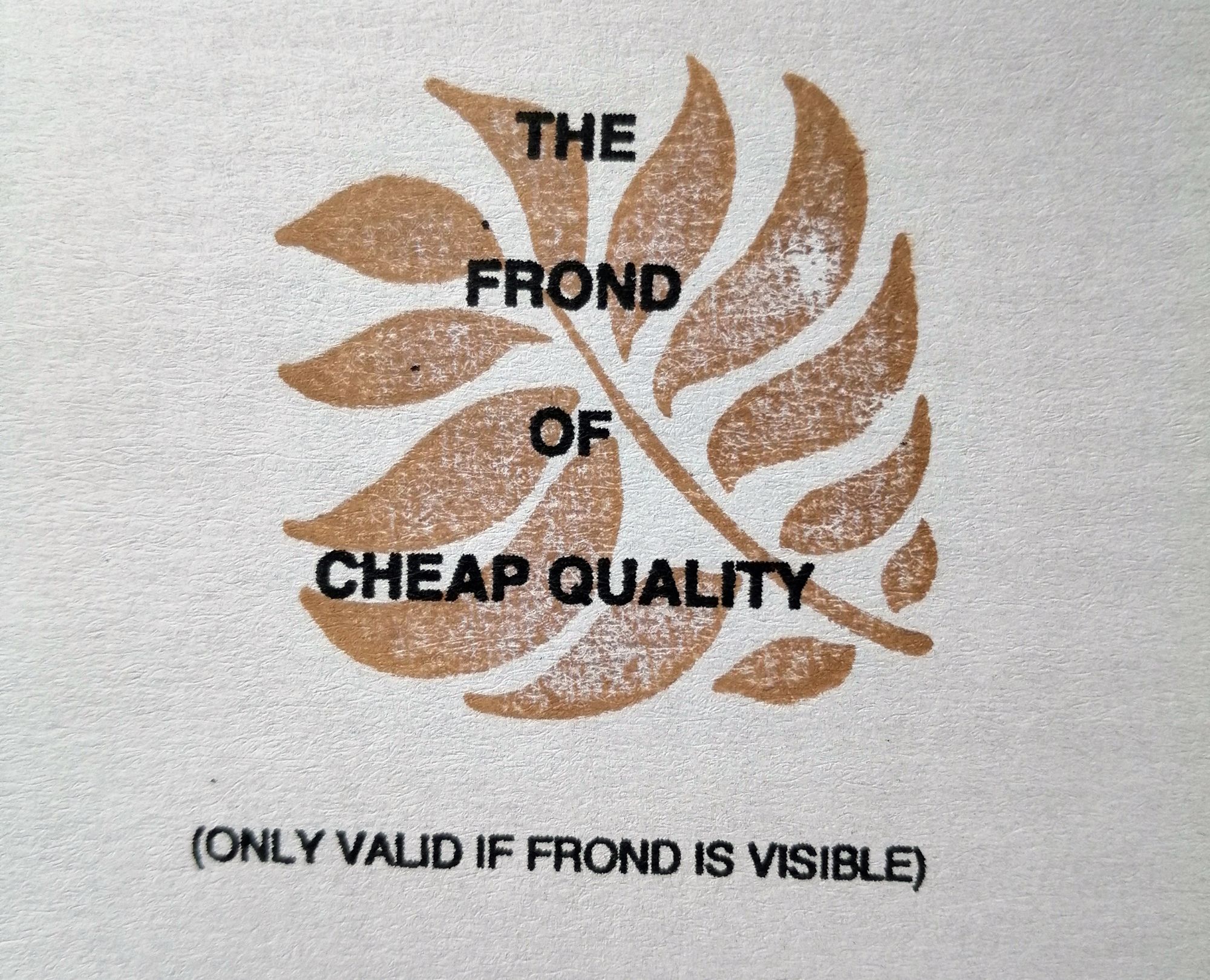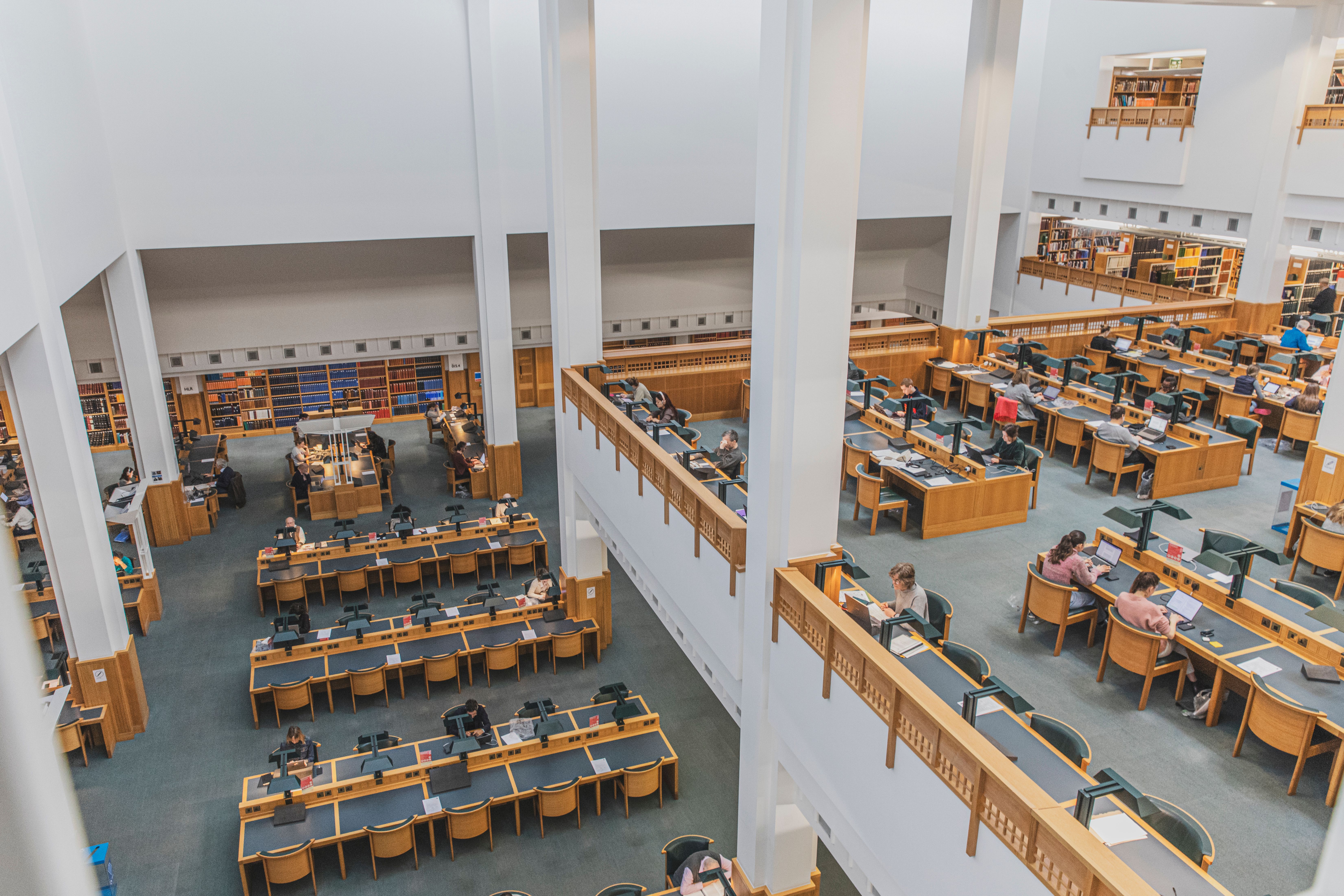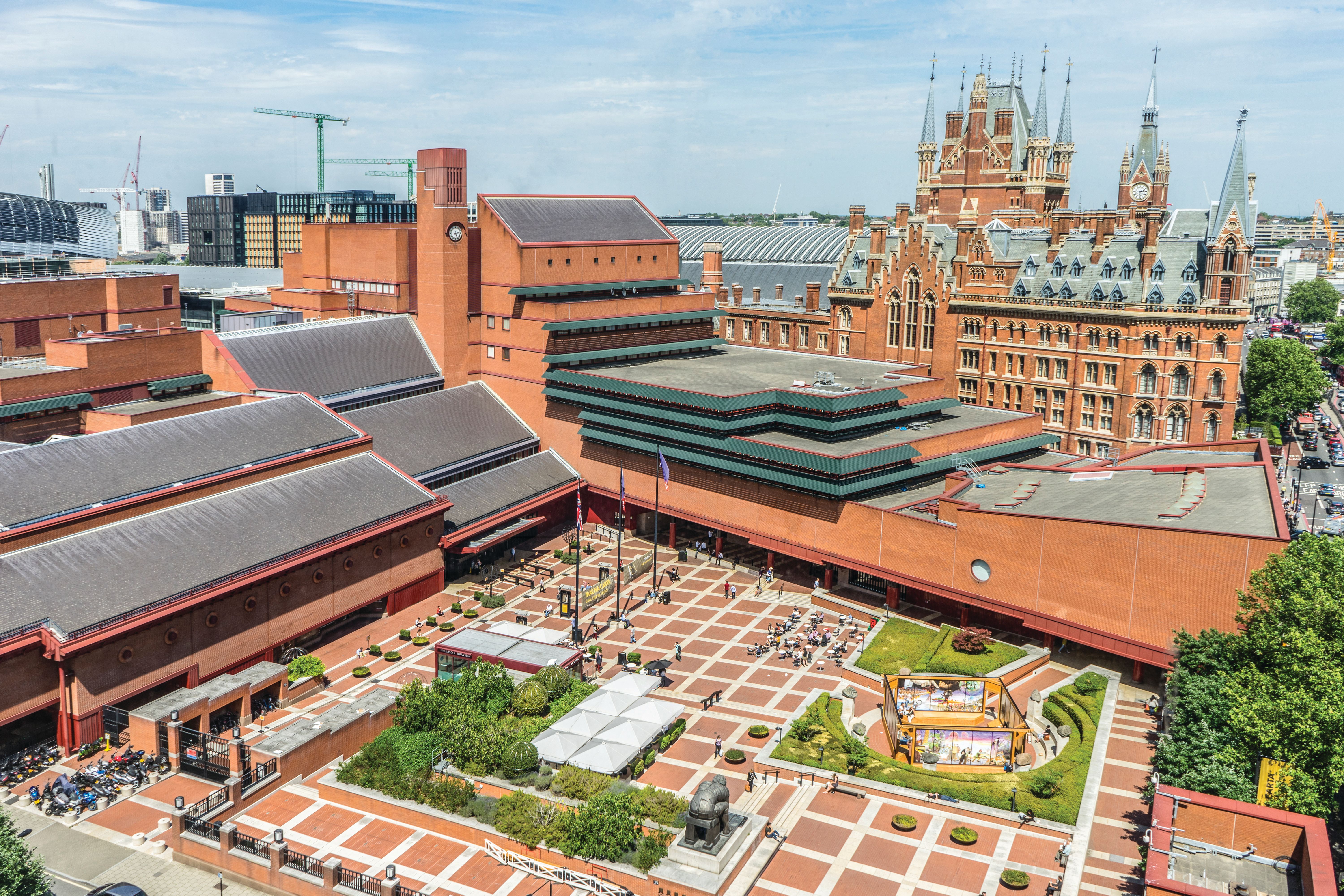Blog series Sound and Vision
Author Stephen Cleary, Lead Curator, Literary and Creative Recordings

Clod editors, clockwise from top left: Stephen Whiting; Tim Kingston; Andy Whiting; Andrew Kingston.
Earlier this year, the Library was delighted to host a series of recording sessions with the four co-editors of Clod Magazine. For those of you who don't already know, Clod is an independent magazine, founded in Luton in 1987, and now approaching its 40th issue. It appears irregularly, with publication ceasing entirely for seven years at one point. ‘No one noticed’, says their Facebook page.
The Clod editors moonlight as members of a similarly long-established music group called the Knockouts. While the magazine has its origins in the indie music fanzine scene of the 1980s, and maintains a DIY cut-and-paste aesthetic, it is not much concerned with music - and is not itself a fanzine.

Hand-stamped embellishments are a common feature.
Rather than music, the substance here is art, humour, and a decidedly prickly and surreal form of social comment. If the Vorticist artist and writer Wyndham Lewis had lived in South Bedfordshire in the second half of the twentieth century, he might well have come up with something like Clod. As with Wyndham Lewis’s provocative journal Blast, Clod has a penchant for morally upbraiding its readership through didactic and slightly deranged polemics.
2024 saw the publication of the collected Clod Magazine issues 1-21 in one bumper 660pp volume. Early issues are out-of-print and impossible to find so this initiative was very welcome. I’m pleased to say the Library has acquired a copy for its collection.
It seemed a good time to conduct some interviews on the history of the magazine and to record some readings and, happily, everybody agreed to participate.
The readings were drawn not just from Clod but from a range of related publications, including the short-lived football fanzine TOWN, and Tim Kingston’s 1998 book Kenilworth Sunset? A Luton Town supporter’s journal. We also recorded a selection from the long-running ‘Luton Haiku’ series (five volumes published to date) and some of Andrew Kingston’s non-Clod solo works.
An exciting exclusive was Andy Whiting’s very funny account of the pleasures of following Hitchin Town FC (aka the Canaries). All being well, this should be published in Clod 40.
Here is a short extract from the recordings. This is Stephen Whiting reading from Clod 36:
Transcript
Ah, here's a little, uh, section from the administration of Clod 36, which was a lockdown Clod, and the title of the little description of the Clod team and how we work is, ‘We Queue Up for Boiled Fish.’ I suppose you're asking what we do here at Clod Magazine that is so special? When we are, uh, when we are not cutting and sticking bits of paper down, what is it we do to banish the blues whilst effortlessly equalising society? Well, not much, as it turns out. We put this small press printed thing together every so often, a few of us. Our regular bulletins. Sometimes two in a year. We issue other little publications over time too. The team have known each other since the bad old days, before school, in fact. So how do we do it? What's a typical day? Well, each morning, to make a difference, the four of us will meet at an upturned barrel at the side of Duke Street in Hightown, Luton. You know, in the UK deprivation area, as recognised by the World Heritage Organisation. The barrel's on fire sometimes, so it's more like a brazier really. It's somewhere we can perch, you know. Somewhere we can rest an elbow and raise the other one for a drink or two, or for some sherbets when no one's paying attention. Anyway, it's on the street by the side of the road where it's quiet, on some old scrap land, rain or shine, near an innocuous little road junction, wire fences and weeds, a bucket in bits and some broken window panes. It doesn't sound very nice but it's perfectly suitable. Broken glass under foot, young mums wheeling kids to the shop, a bit of a smell. When the bottle's passed round, it makes things a bit rosier, you know. It whiles away our mornings, whiles the rest of the world, while the rest of the world works. And anyway, there's nothing better to do. We've tried other things before and they are pale form in comparison. Some of us will head off for a bite to eat later. Boiled fish is popular, with bread. After sharing the bottle of whatever it was, we'll have more of an appetite for food, and a better perspective for talk. We'll head to a nearby cafe that's still open and have our eats, and get talking about what we might put in the magazine, you know. An editorial meeting of sorts. We have a good time of it. We're all friends. It's over 30 years since we started our career with writing. The magazine does all right. It won't worry the tax man. It's a good excuse to keep regular at the barrel. We'll have a drink at least, magazine or no magazine. We don't complain. People seem to like it sometimes. We sell some copies in London all right. Two shops in New York take some copies, and Glasgow too, and down under in Melbourne. I don't think any of us have had much luck doing other things. It was just to occupy time really. To us it feels like our deserts, this writing thing. Our just deserts. It's our little indulgence and no one gets to say we can or can't, you know? We don't ask for anything and we don't expect anything. No one gets poor. It's best not to look too far beyond the beer barrel, the boiled fish, and the bread. Depends on your situation really. We're content putting this magazine together. It doesn't feel so much like work then. We know there's no one banging on the door or ringing us up asking for this or that. Nobody else gets to set the tone or ask us for special treatment, or if we want to borrow some of their money. Clod Magazine pays for itself. A cheap hobby. Keeps us going with our pen, paper and Pritt Stick. The world keeps turning, until the next day when we're back on- at the barrel again. Another brown bottle or two to share. There are other ways of doing things, we know this. That doesn't bother us. We just pull on our big coats and see what's going on, rain or shine, we'll be there. Broken glass under foot, young mums wheeling kids to the shop, a bit of a smell. Everyone has their own ideas. Everyone knows best. We're no different. Stood round a barrel in the rain. It's hardly a chore. There's more than one way to skin a cat.

Sound and vision series
This blog is part of our sound and vision blog series, which highlights the work of our curators, recent acquisitions, digitisation efforts, and collaborations beyond the Library.
It showcases the sound archive’s remarkably diverse collections, spanning from the earliest recordings to born-digital material, and everything in between.
Find out more

Our collections
You can access millions of collection items for free. Including books, newspapers, maps, sound recordings, photographs, patents and stamps.


